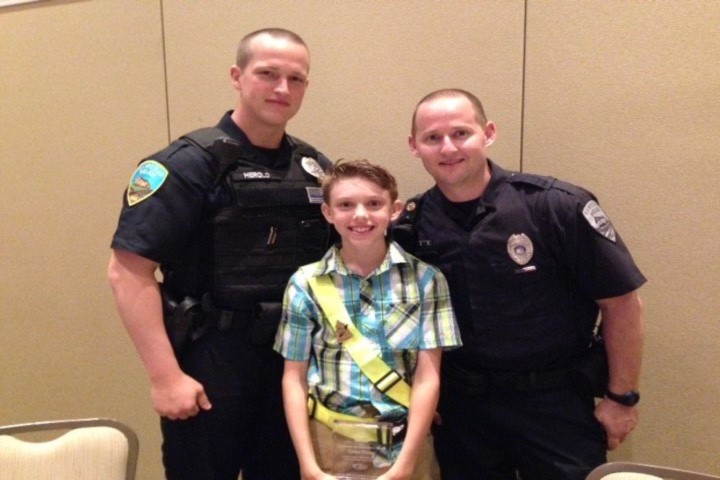Educators and law enforcement are coming together in Carroll County, Maryland to tackle big issues in schools, from family traumas that spill into the classroom to gang activity, drug use, and sex abuse.


Educators and law enforcement are coming together in Carroll County, Maryland to tackle big issues in schools, from family traumas that spill into the classroom to gang activity, drug use, and sex abuse.
The Carroll County State’s Attorney’s Office recently hosted a Safe Schools Training day in late July to bring together teachers, administrators, local sheriff’s officials and the Westminster Police Department to work together on tackling the community’s most pressing issues, the Carroll County Times reports.
Carroll County State’s Attorney Brian DeLeonardo and district superintendent of school counseling Judy Klinger presented a new program called “Handle with Care,” which allows first responders to contact school officials about students who have experienced traumatic events, such as a drug overdose in their home, or domestic violence.
The communication allows school officials to keep a closer eye on those students, and to better understand why they may act out or struggle with academics and and then to intervene to provide support and service.
“I know it’s another thing for law enforcement to do, but its a pretty simple thing and it helps all of us help kids and families,” Klinger said.
“It gives us another level to intervene with the children. … If we know that child is getting some services and help, it helps prevent a future problem,” DeLeonardo added.
Local police also educated teachers about gang activity they may see in the classroom, including gang graffiti, signs of recruitment, and other behavior that may signal a student is steeped in that lifestyle.
Senior Assistant State’s Attorney Courtney Colonese asked educators to contact law enforcement when they come across red flags, and offered insight into how it might impact students at school.
“You may not see (gang activity) in terms of the way law enforcement may see some of this, but you may find out people living in the children’s home are members,” DeLeonardo said. “And you may see that influence in that child.”
The Safe Schools Training also featured updates about in new kinds of drug use, the potential impact of marijuana legalization, and ways to spot and report sexually, physically, and emotionally abused students, the Times reports.
“What you see, what you know, what you learn is huge for us, so don’t take it for granted,” Sgt. Glenn Day told educators.
The collaboration between police and school officials is a critical component of what James Davison Hunter, founder of the Institute for Advanced Studies in Culture, describes as the ideal environment for character education to flourish.
In “The Tragedy of Moral Education in American,” Hunter wrote:
Moral education can work where the community, and schools and other institutions within it, share a moral culture that is integrated and mutually reinforcing; where the social networks of adult authority are strong, unified, and consistent in articulating moral ideals and their attending virtues; and where adults maintain a ‘careful watchfulness’ over all aspects of a young person’s maturation.
More information about the Handle with Care behavior management system is available on the organization’s website, which offers trainings, webinars, a blog, and other resources for a wide variety of folks who work with youngsters.
“As national experts in the fields of verbal intervention and passive restraint, facilitating training for more than 1000 facilities Handle With Care has trained well over 100,000 practitioners working with adults and children in some of the most challenging environments in the United States, Puerto Rico, Canada and Europe,” according to the site.